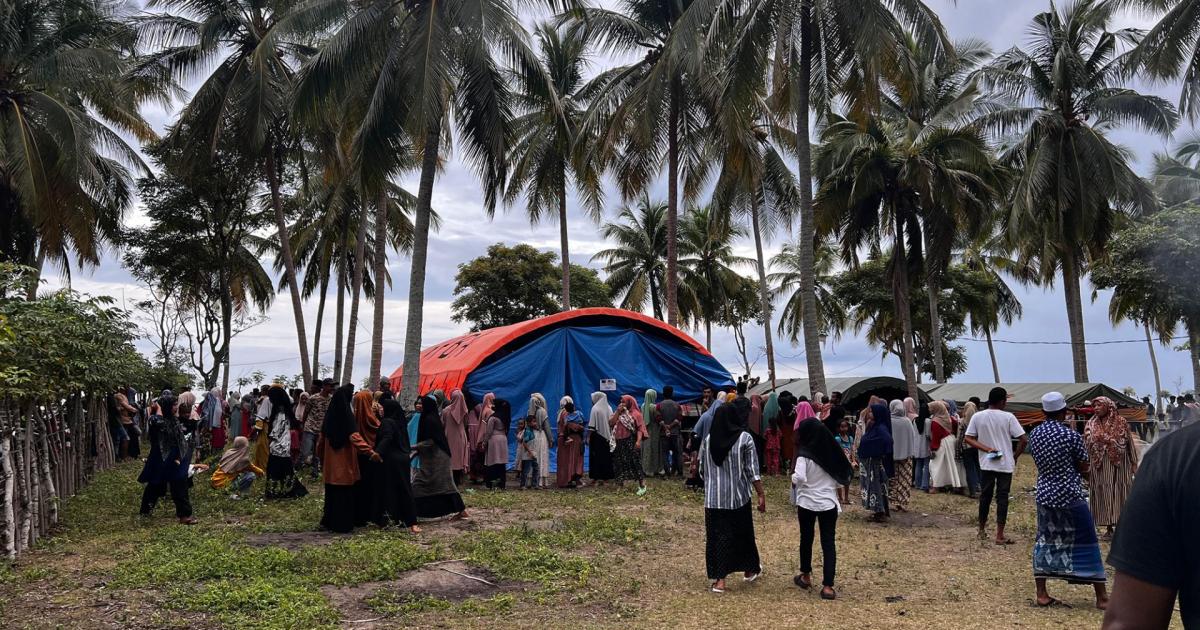Geneva / Bangkok – The International Organization for Migration (IOM) is alarmed by reports of the interception and pushback of vessels carrying Rohingya refugees in the Bay of Bengal and Andaman Sea between Bangladesh and Indonesia.
IOM has verified the arrival in Indonesia of at least five vessels carrying 1,087 Rohingya refugees, the majority of whom are women and children, between 14 November and 22 November. Indonesia has now received more Rohingya refugees from congested, under-resourced refugee camps of Cox’s Bazar, Bangladesh, than the entire past sailing season, from October 2022 to September 2023.
IOM commends the Government of Indonesia and local communities in the province of Aceh for facilitating the disembarkation of desperate Rohingya refugees seeking international protection and encourages all Member States and partners to strike a balance between protecting migrants and detecting and prosecuting migrant smugglers.
“IOM encourages other countries in the region to conduct search and rescue at sea, provide a port of safety to Rohingyas, and ease the burden on Indonesia,” said Sarah Lou Ysmael Arriola, IOM’s Regional Director for Asia and the Pacific. “Preventing Rohingya refugees from landing and pushing them back to sea is a violation of basic human rights and the principles of customary international law by which all States are equally and morally obligated.”
Deteriorating living conditions in Bangladesh, the lack of humanitarian support and durable solutions for an estimated 1 million Rohingya refugees in Coxs Bazar, and escalating conflicts in Myanmar are causing more people to board vessels. Thousands of Rohingya refugees have also entered Thailand and Malaysia this year where they face detention and other protection risks.
In close coordination with local and national authorities, IOM teams in Indonesia were able to provide humanitarian assistance to the Rohingya refugees in Aceh, including medical check-ups and psychosocial support, core relief items, shelter and help moving to community-based accommodations.
Nearly three-quarters of the latest arrivals are women and children. IOM is concerned that without access to basic assistance including safe and dignified living conditions, they are exposed to multiple risks, including exploitation by criminal gangs and threats to their safety, health, dignity and human rights.
Despite the extreme danger and risks of exploitation and abuse involved, most Rohingya refugees embark on sea journeys facilitated by migrant smugglers, intending to reach Indonesia and then Malaysia where a large Rohingya community and income generating opportunities exist.
Additionally, the humanitarian response to Rohingyas in Bangladesh remains severely underfunded as IOM’s appeal as part of the 2023 Joint Response Plan (JRP) for the Rohingya Humanitarian Crisis has so far been funded only 49 per cent.
Cox’s Bazar camps are also impacted by disasters, such as fire and cyclones. The overall abysmal conditions, alongside other security concerns including abductions exacerbate the situation for refugees, according to the reports that IOM received from the refugees.
Information for editors:
IOM’s humanitarian assistance in countries hosting Rohingyas in the region includes:
- Bangladesh: Distribution of lifesaving humanitarian assistance, Child Protection, Counter-Trafficking, protection against Gender-based Violence, Shelter and Non-Food Items, Alternative Fuel (LPG), Site Management and Site Development, Health, Mental Health and Psychosocial Support, Water Sanitation and Hygiene (WASH), social cohesion, skills development, disaster risk management support.
- Indonesia: Support to disembarkation and facilitating access to basic services, including food, water, WASH, health services, psychosocial support, temporary accommodation and refurbishing of communal facilities.
- Malaysia: Cash-based rental assistance and advocacy.
- Thailand: Facilitating access to health and psychosocial support, food and supplemental nutrition, emergency relief items, recreational activities and provision of learning kits as well as supporting advocacy platforms and strengthening capacities on alternative to detention.
***
For more information, please contact:
In Bangkok: Nima Tamaddon, Regional Office for Asia and the Pacific, [email protected], +66 06 2308 8581


